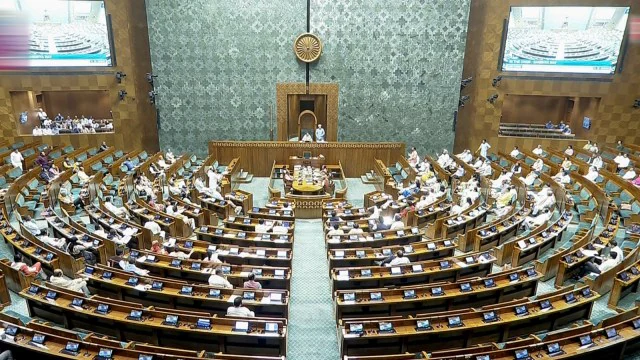By Prof. (Dr.) Sarfaraz Ahmed Khan
& Sheikh Mohammad Sufiyan
The Waqf (Amendment) Bill, 2024, introduced in the Lok Sabha on August 8, 2024, seeks to amend the Waqf Act of 1995. If passed in its current form, the bill would substantially infringe upon the fundamental rights guaranteed by the Indian Constitution, eroding public trust in the country’s legal and democratic institutions.
Waqf means the dedication of property for religious or charitable purposes. It is a unique feature of Islam deeply rooted in Islamic law and sharia. According to Abu Yusuf, “Waqf refers to the holding of anything in the subconscious possession of the Almighty God in a way that permits its revenues to be used for the betterment of humanity. Once a dedication is made, then there cannot be any changes neither it can be sold, given, or inherited.” It is the dedication of one’s own property in the name of God for the public good. It has been incepted to support the underprivileged through charity and aims to bring a well-balanced socio-economic order. The recent attempt to amend the law regarding Waqf undermines the guaranteed constitutional rights and is contrary to old age practices of ‘Waqf by User’ duly recognized and affirmed by the Supreme Court of India.
In this piece, we are exploring more on Waqf as an integral part of Islamic law and how the amendment proposing deletion of Waqf by User not only undermines the guaranteed constitutional protection but it will open a Pandora Box of uncertainty and scrupulous litigation adversely impacting the rule of law.
WAQF UNDER ISLAMIC LAW
Waqf is based on the rules and instructions of the Holy Prophet (PBUH). The Quranic verses which adjure the Muslims to give in their wealth for charity to enable the growth of the community through the donation of properties, leading to the rise of the concept of Waqf, are:
“And in their wealth and properties is the right of the sail (the beggars) who asks and Mahrum (the poor and deprived) who does not ask the others.”
“It is not righteousness that ye Turn your faces towards east or west. But it is righteousness to believe in Allah
And the last day and Angels
And Book and Messenger, to spend on your substance out of love for Him
For your kinds for orphans, for needy, for warfare, for those who asks and for the ransom of slaves.”
“They ask thee What they should spend in charity.
Say what ever wealth ye spend. That is good is for parents kindred, Orphans and those in want and for warfares and whatever Ye do that is good Allah knoweth well.”
Therefore, it can be drawn from the above-mentioned verses of the Holy Quran that charity is one of the most divine and rewarding acts in the sight of Allah and, thus, one of the most essential aspects of Islam.
In Hadith Sahih Muslim, Ibn Umar reported: ‘Hazrat Umar acquired a land at Khybar. He came to Allah’s messenger and sought his (PBUH) advice. He said Allah’s messenger, I have acquired a land in Khyber. I have never acquired a property more valuable for me than it. What do you command me to do with it?’ Allah’s Apostle said: “Tie up the asl (corpus) of the property and devote the usufruct to human beings, and it is not be sold or made the subject of gift or inheritance; Devote its produce to your children, Your kindred and the poor in the way of God.”
This shows that Waqf is an integral part of the Islamic religion and tradition practised even from the days of Prophet Mohammad (PBUH). The constitution of India guarantees religious rights as one of the fundamental rights, and any unjustifiable interference will be tantamount to a violation of such rights.
LEGALITY OF WAQF BY USER
Waqf can be determined in multiple ways in which one is Waqf by the user. It is the permanent dedication of a property or properties for religious, charitable or pious purposes. This includes land used to maintain mosques and graveyards, which allows properties to attain waqf status based on longstanding religious or charitable use, even without formal documentation. Waqf by user has been illustrated clearly over several cases over time.
In the case of Chhutkao v. Gambhir Mal (AIR 1931 Oudh 45.), it was held that “where a plot of land is described as a takia and has been used for many years as a place for burial by Muhammadans whether they are members of one family or not, a presumption arises that there is a waqf by the user. A cemetery or graveyard is consecrated ground and cannot be sold or partitioned. Even lands which are not expressly dedicated but are covered by graves are regarded consecrated and consequently inalienable and non-transferable.” Similarly, in K. Raushan Din v. H. Mohd. Sharif (AIR 1936 Lah 87.), it was held that “a waqf in respect of a burial ground may, in the absence of direct evidence of dedication, be established by evidence of user; by the user from which dedication can be implied must be clearly established and must be of such a character as to be consistent with dedication. Such user or dedication is required to be a public user or dedication. Where the evidence shows no more than that certain persons were many years ago buried in the place user.”
In Khati v. Mirza Hossain Beg (AIR 1962 Ori 95), a waqf was considered to be one which “normally requires express dedication, but if it had been used from time immemorial for religious purpose, then the land is by user waqf through there is no evidence of express dedication.” Waqf by the user was also explicitly recognized by the Apex Court in Maharashtra State Board of Waqfs vs Shaikh Yusuf Bhai Chawla on 20 October 2022. In fact, by referring to the creation of such Waqf of religious places like an ‘Imambara’, the division bench of the Supreme Court held that “such a case, that is Waqf by user, would be a case of immemorial user. That is precisely the reason why the need to prove the dedication may be dispensed with, as the proof of it, may have been lost with the passage of time.”
On the basis of these case laws, we find that courts have recognized “Waqf by User” in numerous cases, and its removal without any justification is not only contravenes the religious rights but also tantamount to undermining Supreme Court decisions which affirm Waqf by User. It will also lead to uncertainty and bring fictitious litigation with ulterior motives.
RECOGNITION OF OTHER RELIGIOUS PROPERTY THROUGH USER
It is not only Islamic tradition which recognized rights through users for immemorable periods, but several other religions also recognized such practices. For instance, Devasthan which is a Sanskrit term that refers to a sacred or revered place, often a temple or shrine dedicated to a deity or deity group. In Hinduism, Devasthan is a property or land assigned to a deity, managed by a trustee or a board of trustees, to maintain the temple and perform religious rituals. The income generated from the property is typically used for the upkeep of the temple and the benefit of the deity. It is also recognized through an endowment by the user. In Shri Ram Kishan Mission v Dogar Singh, (AIR 1984 All 72) the court declared, “A Hindu who wishes to establish a religious or charitable institution, may, according to his law, express his purpose and endow it. A trust is not required for that purpose.”
In Deoki Nandan v Murlidhar, (AIR 1957 SC 133) the court observed that “It is a settled law that an endowment can validly be created in favour of an idol or temple without the performance of any particular ceremonies, provided the settlor has clearly and unambiguously expressed his intention in that behalf. Where it is proved that ceremonies were performed would be valuable evidence of endowment, but the absence of such proof would not be conclusive against it.”
Similarly, in A.K.T.K.M. Narayanan Nambudripad v Board of Commissioners for Hindu Religious Endowments ( AIR 1938 Mad 209), it was observed that “the question of intention to dedicate the place for the use of public or of the user by the public being as of right is necessarily a matter for inference from the nature of institution and the nature of the user and the institution has been administered.” and observation suggested that if there is “a long course of user by the public for the purpose of worship is established, it is fair to infer that the institution must have been dedicated for, user by public.”
Even academic writing indicates that the intention of dedication followed by its use as the endowment is good enough, as observed by Mullla. “A Hindu who wishes to establish a religious or charitable institution, may, according to his law, express his purpose and endow it. A trust is not required for that purpose. All that is necessary is that the religious or charitable purposes should be clearly specified, and that the property intended for the endowment should be set apart for or dedicated to those purposes.”
This indicates that there may be property endowment without the formality of registrations or written documents, as in the case of dedication centuries ago and use for time immemorial will be enough to recognize as endowment property in other religions.
CONCLUSION
The Waqf Amendment Bill 2024, which intended to remove “Waqf by User”, is expected to negatively impact all endowment acts established by different states due to the absence of clarity leading to legal confusion, social unrest, and the erosion of a significant religious heritage. Today, we might see its impact on Waqf, but tomorrow, on the same principles, the government will encroach upon the protected religious right, including the right to property of other religious groups too! The proposed amendments also disregard established legal principles, including Supreme Court judgments, challenging longstanding customs, and conflict with Islamic law principles. By threatening the religious, cultural, and property rights of one religious denomination will have a cascading effect on every religious and non-religious body in India; hence, the bill risks weakening the foundational values of equality, liberty, fraternity, and justice enshrined in the constitution.
Thus, the bill, if passed in its present form, not only creates an explosion of fictitious litigations, which should not be the aim of any administration of justice, but also has the potential to attack secularism and federalism, a part of the basic structure of the constitution.






